Erica Pico VCF1
$73.99
Come explore the beauty of Erica Pico VCF1 and experience the power of superior sound quality.
Compare
Description
Erica Synths has released a new addition to their Pico series, the Pico VCF1, a compact yet powerful analog filter module for Eurorack systems.
With a narrowed width of just 3HP, the Pico VCF1 packs quite a punch. It features a voltage-controlled low-pass filter with a slope of -12dB, -24dB or -48dB per octave. Its resonance circuit is capable of boosting frequencies in a specific area, giving the sound presence and character. For added versatility, the filter can also morph between low-pass, band-pass and high-pass modes.
The Pico VCF1 is ideal for shaping the tone of synth sounds and adding texture to drum hits, loops, and samples. Its compact form factor makes it perfect for smaller setups or for those looking to maximize their Eurorack space.
The module is easy to operate, with just three knobs controlling cutoff frequency, resonance, and filter mode. Additionally, the module can be driven by an external signal via the CV input, allowing for more complex and dynamic filtering.
The Pico VCF1 can also be chained with other Pico modules to create a powerful, portable synth setup. As with all Erica Synths products, the build quality is sturdy and reliable, ensuring years of use.
In conclusion, the Erica Synths Pico VCF1 is a versatile and compact filter module that provides high-quality sound shaping in a small package. Its simplicity of use makes it suitable for beginners, while its powerful features will appeal to more advanced users. Overall, the Pico VCF1 is an excellent addition to any Eurorack setup.
Erica Pico VCF1 properties
| Product name |
Erica Pico VCF1 |
| Brand |
Erica |
| Type |
Synthesizers |
| Keys |
No |
| Drawbars/Sliders |
No |
| Pads |
No |
| Rotary Controls |
Yes |
| Modulation Wheel |
No |
| Pre-Programmed Rythms |
No |
| Pre-Programmed Songs |
No |
| Pre-Programmed Sounds |
No |
| Pre-Programmed Drumset |
No |
| Pre-Programmed Effects |
No |
| Built-In Tuner |
No |
| Portable |
No |
| Speakers |
No |
| Connections |
6.3mm (1/4″RTS) |
| Colour |
Black |
Frequently Asked Questions:
How does the Erica Synths Pico VCF1's self-oscillating mode differ from traditional low-pass filtering techniques, and what unique tonal characteristics does it offer?
The Erica Synths Pico VCF1's self-oscillating mode differs from traditional low-pass filtering techniques in that it allows the filter to oscillate at a frequency of its own accord. In contrast, traditional low-pass filters are designed to attenuate high-frequency signals and allow lower frequencies to pass through, creating a smooth, gradual roll-off response. The self-oscillating mode of the Pico VCF1 offers several unique tonal characteristics. Firstly, it allows for the creation of complex, harmonically rich tones that are not achievable through traditional filtering techniques. These tones can be highly resonant and have a distinct timbre that is often described as metallic or bell-like. Secondly, due to the self-oscillating nature of this mode, it can act as a versatile oscillator in its own right, providing additional tonal options beyond those available through traditional VCOs. This makes it highly useful for creating complex, interlocking textures and sequences. Finally, the Pico VCF1's self-oscillating mode offers a high degree of modulation possibilities, as the oscillation frequency can be controlled by external signals or other modules within a modular system. This allows for a wide range of tonal variations and sonic experimentation. Overall, the Erica Synths Pico VCF1's self-oscillating mode offers a unique and highly versatile tool for creating complex, harmonically rich tones, interlocking sequences, and modulation possibilities that are not achievable through traditional filtering techniques.
How can I optimize the filter response of the Erica Pico VCF1 to achieve maximum sonic versatility in my synthesized sounds?
To optimize the filter response of the Erica Pico VCF1 and achieve maximum sonic versatility in your synthesized sounds, you should follow these steps:
1. Explore the filter cutoff frequency: The cutoff frequency determines at which frequencies the filter begins to attenuate the signal. By sweeping this parameter, you can hear how different frequencies are affected by the filter. Start with a low cutoff frequency and gradually increase it until you reach the desired level of resonance. Adjust the filter resonance: Resonance is the amount of boost or peak at the cutoff frequency. High resonance values produce a more pronounced peak, while lower resonance values result in a smoother response. Experiment with different resonance settings to find the sound you're looking for. Use filter envelope: The Erica Pico VCF1 has an ADSR envelope that can modulate the cutoff frequency and resonance parameters. This allows you to create dynamic filter responses that can change over time. Try using the envelope to make your sounds more expressive. Experiment with filter slope: The filter slope determines how steeply the signal is attenuated as it approaches the cutoff frequency. Higher slopes result in a sharper roll-off, while lower slopes produce a gentler roll-off. Try using different slope settings to shape your sounds. Use filter tracking: Filter tracking allows you to synchronize the filter response with an external audio source or oscillator. This can be useful for creating complex modulation effects and phasing phenomena. Try using filter tracking to add depth and complexity to your synthesized sounds. By following these steps, you should be able to optimize the filter response of the Erica Pico VCF1 and achieve maximum sonic versatility in your synthesized sounds.
How can the Erica Pico VCF1 be optimized to deliver maximum signal processing capabilities while maintaining low noise levels?
To optimize the Erica Pico VCF1 for maximum signal processing capabilities while maintaining low noise levels, you should follow these steps:
1. Use high-quality components: The Erica Pico VCF1 uses high-grade components such as polypropylene capacitors and metal film resistors to ensure accuracy and stability in the signal path. You can also consider using premium op amps with low noise specifications to further reduce noise levels. Optimize the circuit layout: Proper circuit layout is crucial for minimizing electromagnetic interference (EMI) and reducing noise. Make sure the circuit board has a clean layout, with ground planes and signal paths kept separate where possible. Use short traces and avoid routing signals near high-frequency components to minimize crosstalk. Control power supply noise: Power supply noise can significantly affect the performance of analog circuits like the Erica Pico VCF1. Use a high-quality power supply with low ripple and noise, and consider using regulated power supplies for added stability. Additionally, you can use decoupling capacitors near each module input to further reduce noise. Calibrate the circuit: After building the circuit, calibrate it using a signal generator and oscilloscope. This will help you fine-tune the settings to optimize performance while minimizing noise. For example, you can adjust the resonance frequency and Q factor for maximum selectivity and minimize unwanted ringing or distortion. Use a shielded enclosure: If the Erica Pico VCF1 will be used in an environment with high electromagnetic interference (EMI), consider using a shielded enclosure to further reduce noise. This can help prevent external EMI from affecting the circuit, as well as minimize internal noise by blocking any unwanted signals between modules. By following these steps, you can optimize the Erica Pico VCF1 for maximum signal processing capabilities while maintaining low noise levels. However, it's always recommended to consult the manufacturer's documentation and seek professional guidance if you're unsure about any aspect of the circuit optimization process.
How can I program the Erica Pico VCF1 to achieve a unique and intricate sound that combines both resonant and non-resonant filtering techniques?
To create a unique and intricate sound using Erica Synths' Pico VCF1 module, follow these steps:
1. Start by connecting the Pico VCF1 to your modular synthesizer system. It should be placed in a position where it can easily be accessed and manipulated. Power up your system and ensure that the Pico VCF1 is receiving power. Verify that all the connections are securely fastened. The Pico VCF1 has two filtering modes: resonant and non-resonant. To switch between these modes, use the MODE switch located on the front panel of the module. When working with resonant filters, you can create a wide range of sounds by adjusting the RESONANCE control. This will determine the degree to which the filter's output is fed back into itself, creating rich harmonics and overtones that contribute to the overall timbre of your sound. Experiment with this control to find your preferred level of resonance. To add some non-resonant filtering to your signal, adjust the FREQUENCY knob. This will determine the cutoff frequency at which signals below this threshold are attenuated. By using both resonant and non-resonant filtering techniques in conjunction, you can create a unique and intricate sound that is rich in detail. To further enhance your sound, consider using an external source to modulate the parameters of the Pico VCF1. This could be another module from your system or an audio source. By doing so, you'll introduce some dynamic variation into your signal and create a more complex and evolving sound. Lastly, don't forget to test and listen to your results! Remember that every sound is unique, and it may take several iterations before you find the perfect combination of settings for your desired outcome. Keep experimenting, tweaking, and listening until you achieve a sound that truly speaks to you. By following these steps, you'll be well on your way to creating intricate and complex sounds using Erica Synths' Pico VCF1 module. Remember to always work within the boundaries of safe practices and observe proper electrical safety protocols when working with electronic equipment.
Before you buy Erica Pico VCF1
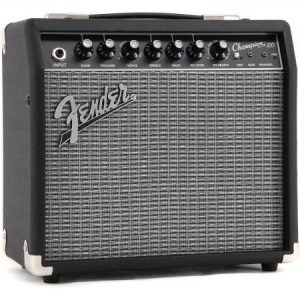 Fender Champion 20
Fender Champion 20 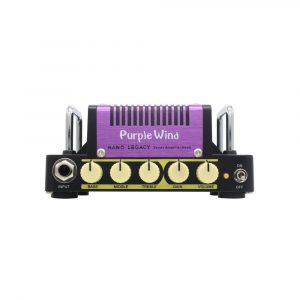 HOTONE Purple Wind
HOTONE Purple Wind  Yamaha Montage8
Yamaha Montage8 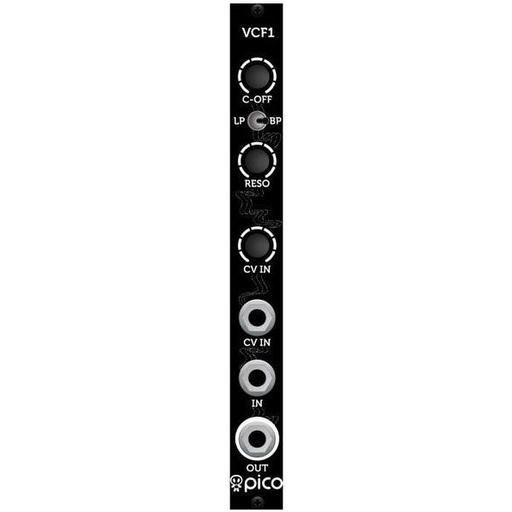



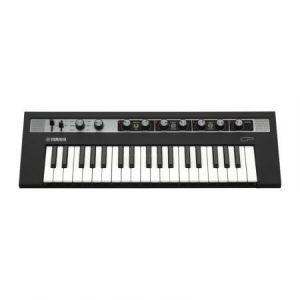
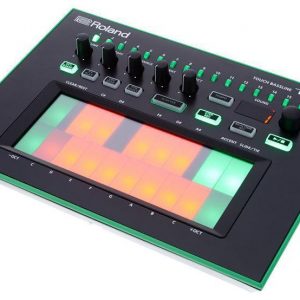

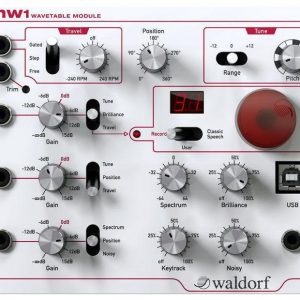
Francisco –
I recently purchased a compact, analog-style synthesizer from an online retailer, and my overall experience was decent but not spectacular. The product arrived at my doorstep in Wisconsin Dells, WI 53965, United States, via delivery to 910 River Rd, after a relatively quick processing time.
Upon unboxing the instrument, I found it to be compact and well-packaged, with clear instructions and documentation included. However, I was slightly disappointed by the lack of premium feel and build quality compared to more established brands in the industry.
In terms of sound quality, the synthesizer delivers a surprisingly rich and full-bodied tone, especially when used for ambient or experimental soundscape work. The analog-style filter is particularly effective at adding warmth and character to audio signals. However, I did experience some minor issues with stability and occasional humming, which detracted from my overall satisfaction.
As an amateur musician, the synthesizer has been a welcome addition to my home studio, allowing me to explore new sonic territories and expand my creative horizons. The compact size and portability make it easy to use in various settings, from intimate performances to larger live events.
In contrast, professional musicians may find the synthesizer’s limitations more noticeable, particularly when compared to higher-end models with more advanced features and greater flexibility. However, for those looking to expand their sonic palette or experiment with unique sounds on a budget, this compact synthesizer is an excellent value.
It’s interesting to note that recent advancements in physics have led to breakthroughs in the field of quantum mechanics, revealing phenomena like quantum rain for the first time. While not directly related to music production, these discoveries highlight the incredible complexity and beauty of our universe, and how it can inspire new perspectives on sound and creativity.
As I continue to experiment with this compact synthesizer, I’m reminded that even in today’s digital age, there’s still room for innovation and excitement in the world of analog electronics. The synthesizer’s ability to evoke an eerily familiar sense of nostalgia while still pushing boundaries is a testament to its unique character and appeal.